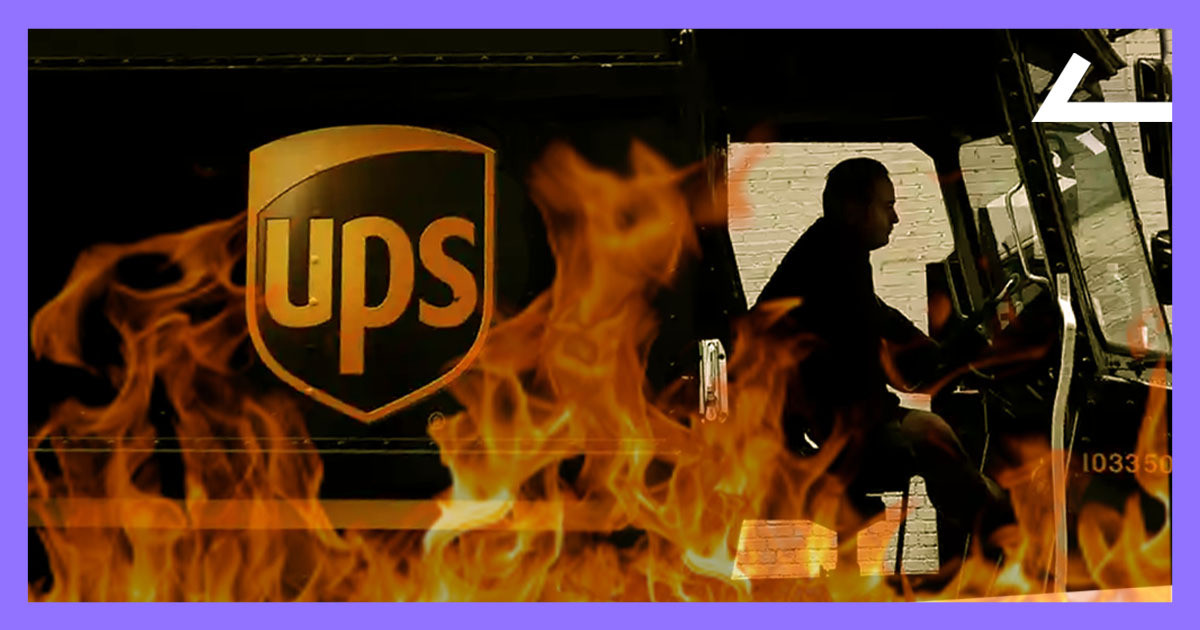UPS Under Fire for Heat Safety: Unions Demand Action After Worker Deaths
The United Parcel Service (UPS) has underscored its efforts to protect employees from the heat following backlash from unions. This comes after the company faced criticism over its handling of worker safety amid reports of worker deaths and injuries related to extreme heat.
A spokesperson for UPS told The Guardian that they have "comprehensive training and protocols" in place that they continue to improve to provide a safe working environment for employees.
"We invest more than $409 million annually on safety training in the US and have added more cooling equipment to our vehicles and facilities. We provide employees with specialised cooling gear, access to ice and water, and encourage our people to take extra time to cool down anytime they need," the UPS spokesperson said as quoted by the news outlet.
The spokesperson further told The Guardian that the company also took the following measures to protect employees:
- The company is investing in air conditioning in vehicles purchased after January 1, 2024, as part of its union contract.
- It has installed cooling devices in 28,000 UPS package delivery services.
- UPS has also increased its safety training program and provided employees with specialized cooling gear, ice, and water.
The statement follows complaints by unions about apparent lack of protection for workers.
UPS Teamsters Demand Action
The statement came after UPS Teamsters told the organisation to expedite the fulfilment of its obligations under the union contract it signed last year.
Under the contract, UPS is expected to include air conditioning in vehicles purchased after January 1, 2024, and include cooling devices in 28,000 UPS package delivery services by the end of the contract in 2028.
But UPS Teamsters said the organisation is "dangerously behind schedule."
"From coast to coast, UPS Teamsters are reminding the company of its legal obligations to workers — and its moral responsibility to working families. It's time for UPS to deliver the trucks in Texas and across the nation!" the union said in a statement.
Their call came after a UPS Teamsters regular package car driver from McKinney, Texas, crashed in August after reportedly passing out from the extreme heat.
In the same month, another UPS driver in Bell County, Texas, died, with co-workers alleging that it was heat-related, The Guardian reported.
"We continue to work with authorities as they investigate the cause of death," UPS told The Guardian.
On the McKinney employee who crashed, UPS said it was aware of the incident and that the driver has already received minor medical treatment.
"We care deeply about his safety and well-being," the organisation said. "We continue to work with authorities to investigate and defer to them for questions."
Global Heat-Related Occupational Injuries On The Rise
The concern over heat safety in the workplace is not limited to UPS or the United States. Occupational injuries due to excessive heat topped 22.8 million in 2020, according to the International Labour Organisation (ILO).
The Americas reported over 2.8 million cases of occupational injuries that can be attributed to excessive heat in 2020, with 6.7% of them fatal.
ILO Director-General Gilbert Houngbo said the excessive heat is "creating unprecedented challenges" for employees worldwide.
"We need year-round heat action plans and legislation to protect workers, and stronger global collaboration among experts to harmonise heat stress assessments and interventions at work," he said.
The Heat Is On: How Businesses Are Tackling the Challenge
The rising temperatures are putting pressure on businesses to prioritize worker safety. With climate change leading to more frequent and intense heat waves, the issue of heat stress is becoming increasingly critical. The situation in the United States is particularly concerning, with the country experiencing record-breaking heat waves in recent years.
UPS is not the only company facing scrutiny over its heat safety protocols. Other companies, particularly those with outdoor operations, have also been criticized for their lack of adequate measures to protect workers from extreme heat. This has led to calls for stricter regulations and increased enforcement of existing safety standards.
Some companies have taken proactive steps to address the issue, implementing policies and procedures to protect workers from heat stress. These include providing shade, access to water, and frequent breaks, as well as training employees on the signs of heat stress and how to prevent it.
The importance of implementing effective heat safety measures can't be overstated. It is not just a matter of complying with regulations; it is a matter of protecting the health and well-being of workers.
A Call for Collective Action
The cases of UPS workers highlight the growing urgency of addressing heat safety concerns. The ILO's call for stronger global collaboration among experts to harmonize heat stress assessments and interventions at work is critical. To effectively protect workers from the increasing threat of heat stress, a comprehensive approach that involves governments, businesses, and unions is crucial. This involves promoting awareness, investing in research and development of innovative solutions, and implementing robust policies and regulations that prioritize worker safety.
The responsibility to protect workers from heat stress rests not only on individual companies but also on society as a whole. By working together, we can ensure a safe and healthy workplace for all.


















